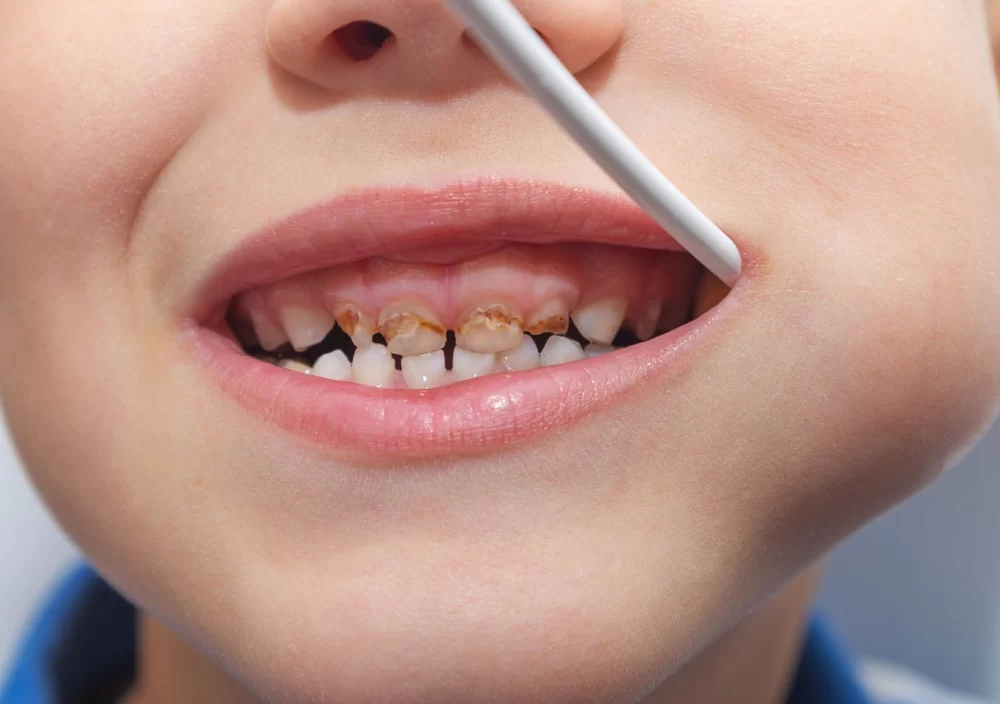
Treating Cavities in Baby Teeth That Are About to Fall Out: What You Need to Know
- 1. Understanding Cavities in Baby Teeth
- 2. Why Should You Treat Cavities in Baby Teeth?
- 3. Treatment Options for Cavities in Baby Teeth
- 4. Common Myths About Cavities in Baby Teeth
- 5. Preventing Cavities in Baby Teeth
- 6. What to Do if a Cavity in Baby Teeth is Too Deep
1. Understanding Cavities in Baby Teeth
Baby teeth, also known as primary teeth, play a crucial role in your child's oral development. These temporary teeth help children chew, speak, and form habits for good dental hygiene. However, they are also susceptible to cavities due to sugary foods and inadequate oral care. Though baby teeth will eventually fall out, cavities can still cause pain, infection, and other dental issues that may affect the permanent teeth coming in.
2. Why Should You Treat Cavities in Baby Teeth?
Many parents may wonder if it's necessary to treat cavities in baby teeth, especially since they are temporary. However, untreated cavities can cause significant problems, such as:
- Pain: Cavities can become painful, making it difficult for your child to eat or sleep comfortably.
- Infection: A decayed tooth can lead to infections, which may spread to surrounding teeth or even into the gums.
- Impact on Permanent Teeth: Cavities left untreated can potentially affect the development of permanent teeth, leading to future dental problems.
3. Treatment Options for Cavities in Baby Teeth
If your child has a cavity in a baby tooth, there are several treatment options to consider. These treatments will depend on the severity of the cavity:
- Fillings: If the cavity is small to medium, your dentist may fill the tooth with a dental material that restores its function and structure.
- Silver Diamine Fluoride: This non-invasive treatment is often used for small cavities in baby teeth. It helps stop the decay from spreading, though it may leave a dark stain on the affected tooth.
- Pulpotomy: For larger cavities affecting the pulp (nerve) of the tooth, a pulpotomy may be necessary. This procedure removes the infected tissue and helps preserve the tooth until it falls out naturally.
- Extraction: In severe cases where the tooth is too decayed to save, your dentist may extract the tooth. This option is typically reserved for when the tooth has already become loose or infected.
4. Common Myths About Cavities in Baby Teeth
There are several misconceptions about cavities in baby teeth that can lead to neglecting treatment. Let’s clear up some of the most common myths:
- Myth 1: Baby teeth don't matter because they will fall out. While baby teeth are temporary, they are essential for a child's oral health and development. Cavities in baby teeth should be treated to avoid complications.
- Myth 2: Cavities in baby teeth will go away on their own. Cavities do not heal on their own. They will continue to grow unless treated by a dentist.
- Myth 3: Baby teeth are less likely to get cavities. Baby teeth are just as vulnerable to cavities as adult teeth, especially if proper dental hygiene is not maintained.
5. Preventing Cavities in Baby Teeth
Preventing cavities in baby teeth is vital for maintaining good oral health and ensuring that your child grows up with a healthy smile. Here are a few tips to help prevent cavities in your child’s teeth:
- Brush and Floss Regularly: Brush your child’s teeth twice a day and floss once to remove plaque and food particles.
- Avoid Sugary Snacks: Limit your child’s intake of sugary foods and drinks, which can contribute to tooth decay.
- Regular Dental Checkups: Visit the dentist every six months to ensure your child’s teeth are developing correctly and to catch any cavities early.
6. What to Do if a Cavity in Baby Teeth is Too Deep
If a cavity in your child’s baby tooth is too deep, it may affect the tooth’s pulp (nerve). In this case, your dentist might recommend a pulpotomy, a procedure that removes the infected tissue but preserves the tooth for the time being. If the tooth is beyond repair, extraction may be necessary. Your dentist will explain the best option for your child’s specific needs and ensure that they receive the appropriate care.







 Princeton Dental Dr. Kevin F. Blair, DDS5.0 (3 review)
Princeton Dental Dr. Kevin F. Blair, DDS5.0 (3 review) Kid's Dental4.0 (280 review)
Kid's Dental4.0 (280 review) Ocean Dental4.0 (141 review)
Ocean Dental4.0 (141 review) EON Clinics4.0 (24 review)
EON Clinics4.0 (24 review) Irina Moga, DDS4.0 (199 review)
Irina Moga, DDS4.0 (199 review) Mountainside Dental Group - Rancho Santa Margarita4.0 (117 review)
Mountainside Dental Group - Rancho Santa Margarita4.0 (117 review) The Importance of Oral Health Education During Pregnancy for a Healthy Pregnancy
The Importance of Oral Health Education During Pregnancy for a Healthy Pregnancy Best Tips for Brushing Your Teeth Properly for Healthy Gums: Essential Techniques for Oral Health
Best Tips for Brushing Your Teeth Properly for Healthy Gums: Essential Techniques for Oral Health Why Skipping Dental Checkups Can Lead to Bigger Oral Health Problems
Why Skipping Dental Checkups Can Lead to Bigger Oral Health Problems Advantages of Porcelain Dental Restorations
Advantages of Porcelain Dental Restorations How Can Diabetes Cause Tooth and Gum Problems? Preventing and Managing Oral Health Issues
How Can Diabetes Cause Tooth and Gum Problems? Preventing and Managing Oral Health Issues Healthy Habits for Promoting Good Oral Health and Hygiene: Tips for a Healthy Smile
Healthy Habits for Promoting Good Oral Health and Hygiene: Tips for a Healthy Smile